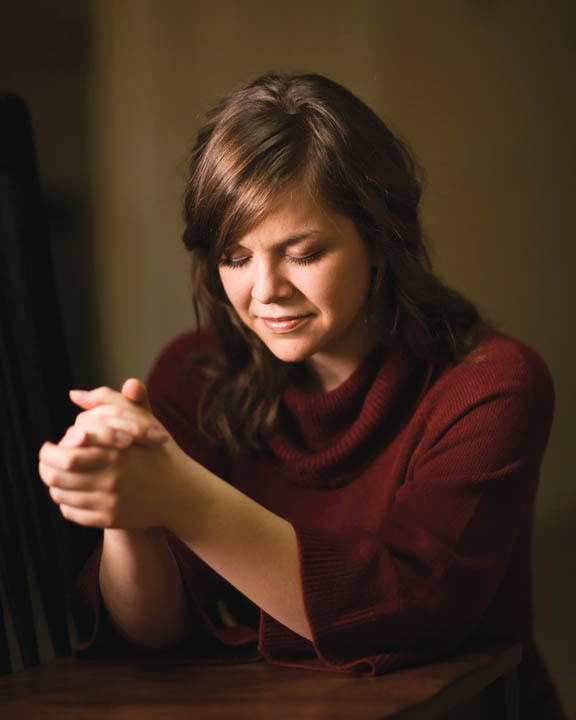Question
Gramps,
I listened to a podcast recently where a person of another faith talked about their personal practice of writing out their prayers. I usually think my best when I’m writing and often get a little side tracked when I pray. Would there be anything wrong with trying this? I feel like it would make my prayers more meaningful.
Jake
Answer
Dear Jake,
Thank you for this interesting question. I know you aren’t alone in wondering this sort of thing, and it has been interesting to do a little research. I say “little” because, well, I just couldn’t find a lot about it, in fact, nothing which addresses it directly. But let’s explore what I found, and hopefully that will give you sufficient direction.
Hymns, Dedications, and Ordinances
The first thing that came to my mind was D&C 25:12 (emphasis mine):
For my soul delighteth in the song of the heart; yea, the song of the righteous is a prayer unto me, and it shall be answered with a blessing upon their heads.
The hymns we sing were written down well before you and I will sing them on Sunday. So here we have a type of prayer that was written down. Obviously this isn’t what you’re pondering, and I think you’ll agree, it’s a special case. As is the only other style of pre-written prayer I found:
There are a few approved formal written prayers in the Church. These include dedicatory prayers offered when temples are presented to the Lord — the prayer of dedication for the Kirtland Temple being given by direct revelation (D. & C. 109) — and the sacramental prayers which are always spoken exactly as found in the revelation. (D. & C. 20:77-79.) Other than formal revealed prayers, it is the practice of the saints to pray extemporaneously, the one acting as mouth striving for the best inspiration he can get in each instance. (Bruce R. McConkie, Mormon Doctrine)
Once again, these are not the sort of prayer you’re asking about, but the fact that these are our only written prayers should be carefully weighted in your consideration. Also, that last line of the quote from Elder McConkie is important, and we’ll come back to it later.
Set Prayers
All the things I found directly addressing the question of written prayers were about the use of set prayers (such as are used in many other faiths). Elder McConkie wrote the following in Mormon Doctrine, regarding the reading of set prayers:
Frequently they are spoken without real intent; and their use keeps men from searching their own hearts in an attempt to pray in faith according to an approved pattern so that actual blessings may be gained from Deity.
In October 1950 General Conference, Eldred G. Smith (Patriarch to the Church) had this to say on the same topic:
Do you think Joseph Smith would have received that wonderful manifestation if he had simply read a prayer? How much of our heart goes into a prayer of that nature? How much faith can we exercise with words and thoughts that are not our own?
And that’s about it. I found nothing recent which addresses “written prayers”. From these quotes, it’s perfectly clear that we are not to recite prayers which were previously written by another. Also, we learn that when a group of people are praying together, “it is the practice of the saints to pray extemporaneously, the one acting as mouth striving for the best inspiration he can get in each instance.”
Perfect Prayers
Still, these questions and comments about the problem with set prayers also guide us in how to offer meaningful prayers. Continuing the above quote from Elder Smith, we read:
We do not read our prayers in this Church, but some of us get in almost as bad a rut. We are so bound by set words and phrases at times that we hardly remember what we are saying. We must have a spirit of deep humility, of repentance, an open mind, to receive the will of God.
And shortly after the earlier quote from Elder McConkie, he wrote:
Perfect prayers are those which are inspired, in which the Spirit reveals the words which should be used. (3 Ne. 19:24.) “And if ye are purified and cleansed from all sin, ye shall ask whatsoever you will in the name of Jesus and it shall be done. But know this, it shall be given you what you shall ask.” (D&C 50:29-30.)
And this I think is the key point to keep in mind as you consider how to improve upon your prayers. True prayers are guided by the Spirit, teaching us what to say. Right about now, you may be thinking that the Spirit can guide you in what to write as well as in what to say. And I can’t disagree with you – many times I have felt the Spirit guiding me as I wrote a letter, a talk, or a lesson.
One Lone Example
I did find a lone example of a written prayer, the sort you might otherwise have heard, had people been able to gather for the prayer. It was at the end of a letter from the Prophet Joseph Smith to the saints. (See Teachings of the Prophet Joseph Smith, Section One 1830-34, “A Prayer for the Afflicted Saints”.) What we don’t know is whether this prayer was first spoken, and then recorded, or if the writing came first. I suspect if it was first written, that it was not then read (or prayed) by the prophet, but that the writing (and perhaps more importantly, what was in the prophet’s heart as he wrote) stood alone as the prayer. If my suspicion is correct, this would be the inverse of what we find in scripture, where occasionally a prophet recorded his prayer after the fact, as a record for posterity.
The fact that I found only this one example tells me we should consider carefully the absence of this practice from our teaching, scriptures, and historic examples. There must be a reason for its absence.
Writing Things Down
All the above makes me wonder about what we might write in relation to prayer. The scriptures include records of what prophets prayed for, and the answers, guidance, or promptings received in answer to prayer. Following this example not only seems safe, it seems wise.
Elder Richard G. Scott gave a powerful talk regarding how to receive spiritual guidance. Key in his experience and instruction is recording what you receive:
After each powerful impression was recorded, I pondered the feelings I had received to determine if I had accurately expressed them in writing. As a result, I made a few minor changes to what had been written. Then I studied their meaning and application in my own life.
Subsequently I prayed, reviewing with the Lord what I thought I had been taught by the Spirit. When a feeling of peace came, I thanked Him for the guidance given. I was then impressed to ask, “Was there yet more to be given?” I received further impressions, and the process of writing down the impressions, pondering, and praying for confirmation was repeated. Again I was prompted to ask, “Is there more I should know?” And there was. When that last, most sacred experience was concluded, I had received some of the most precious, specific, personal direction one could hope to obtain in this life. Had I not responded to the first impressions and recorded them, I would not have received the last, most precious guidance.
At the end of a First Presidency Message by President Eyring from the September 2015 Ensign, the following is offered as a suggestion to help youth improve their prayers:
Before you begin your prayer, take a few moments to think about what you want to say. Consider questions you might have or things that have been bothering you—you can even write them down so you don’t forget. Use this time too to clear your mind from the ruckus of the day so you can focus on the gentle impressions of the Holy Ghost. If your mind tends to wander while you pray, try to visualize Heavenly Father listening. Speak in specifics. Also, leave a few minutes at the end of the prayer to listen to the promptings of the Spirit. You might write down your impressions in your journal.
A friend with whom I discussed this had similar thoughts – that if we prepare for important meetings (be they for work, church, or other purposes) by planning agendas or lists, why not do so for prayer, which is surely as important a meeting as we can attend.
Finally, in a 2011 New Era article (I recommend reading the entire thing), a young woman describes her experiences in trying to learn what constituted a “mighty prayer”. For her, writing did not help:
Over a period of time I tried many other techniques, such as concentrating harder, writing down everything I needed to pray for so I wouldn’t forget anything, and praying out loud. Nothing seemed to make my prayers feel mighty.
Then one day that all changed. It happened to be near Christmastime and I was listening to “O Holy Night” in my bedroom. As I pondered the Savior and His mission, the music penetrated my heart. A feeling of joy and gratitude washed over me as I thought of the Savior’s love and His great Atonement. I got on my knees and uttered a simple prayer of thanksgiving, with the hope that I could become more like Him. As a gentle warmth and happiness enveloped my heart, heaven felt very near, and the Spirit helped me to understand that this is what it meant to have mighty prayer.
… It wasn’t until months later, … that I began to understand. …
I again felt that soft, warm, peaceful feeling of heaven close around me, and I knew through the Spirit that my will and my Heavenly Father’s will were one.
It was then that I understood the difference between those two “mighty” prayers and all the others. It was the Spirit. In those two prayers, the Holy Ghost was present and taught my heart and mind what to say so that my will was in line with the will of my Heavenly Father. The Spirit had helped to make my prayers mighty.
Conclusion
I know that was a long way to come for what amounts to, “I’m not sure”, but I think we’ve learned some key points, Jake:
- More than anything else, we need to sincerely open our hearts to be guided by the Spirit.
- Not only is it OK to write impressions received as a result of prayer, it’s wise.
- Pondering and writing down the things you wish to pray for can help to clear your mind of distractions and help you focus on the things you wish to pray.
Given all that, my personal opinion is that you should carefully consider these things, and if you choose to try it, make sure you don’t let it get in the way of the Spirit. And if you find it does, don’t hesitate to give it up. I’m sure our Heavenly Father appreciates your desire to improve your prayers, and that the Lord will bless you in your efforts – whether that blessing comes by using writing, long term or as a temporary tool to help you focus; or by giving you the strength to focus your thoughts without needing to write them as part of the process.
In 3 Nephi 19, we read about when Christ prayed for the people: “…tongue cannot speak the words which he prayed, neither can be written by man the words which he prayed.” Make sure that you don’t let writing get in the way of things words, written or otherwise, simply cannot express.
Gramps







